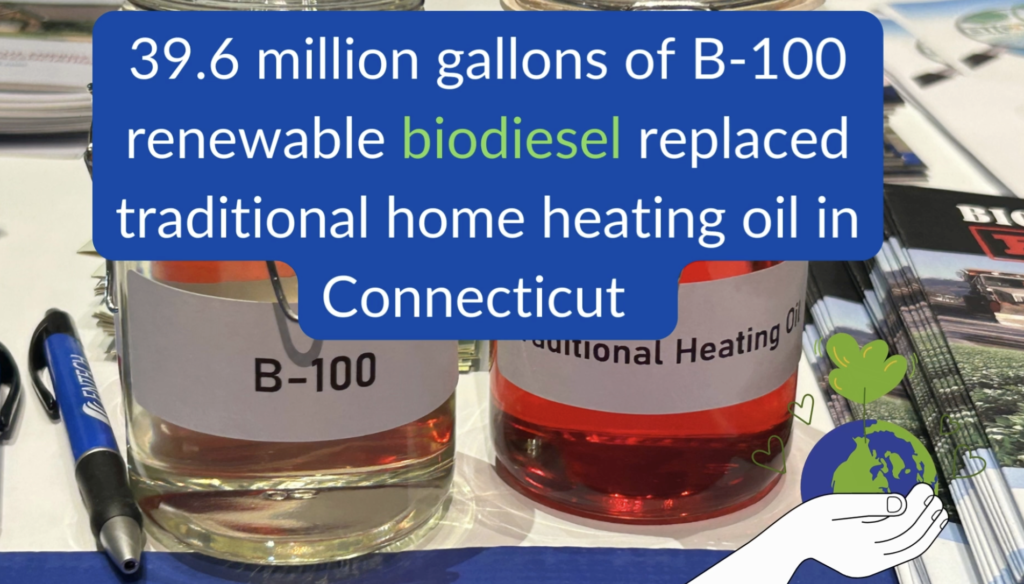“By upping the production of biodiesel, we are becoming independent of foreign oil while keeping food waste out of landfills. Biodiesel is great for the economy. It’s great for the environment, and it’s made in the United States of America,” said Chris Herb, president, and CEO of CEMA.
Cromwell, CT: From July 2022 to March 2024, Connecticut Energy Marketers Association’s home heating fuel members replaced 39.6 million gallons of home heating oil with renewable biodiesel. This is a direct result of a relatively new law (Public Act 21-181) which went into effect two years ago, and requires home heating oil be blended with the green, liquid fuel. CEMA members wholeheartedly supported this law and lobbied for it in order to set a new standard for home heating fuel moving forward.

Biodiesel is made from discarded cooking oil from restaurants around the state and other big commercial venues like the Hartford Yard Goats’ stadium, Hartford Healthcare amphitheater in Bridgeport and most colleges and universities around the state. It is also made from discarded soybean oil and helps to keep this kind of waste of out landfills. Instead, this waste is recycled into a clean burning fuel through a safe, scientific process.
“By upping the production of biodiesel, we are becoming independent of foreign oil while keeping food waste out of landfills. Biodiesel is great for the economy. It’s great for the environment, and it’s made in the United States of America,” said Chris Herb, president, and CEO of CEMA.
Every year, the amount of biodiesel mixed with ultra-low sulfur heating oil will increase. By 2035, home heating fuel in Connecticut will be 50% biodiesel. Biodiesel is a direct replacement of fossil fuels that can be used in current equipment for home heating fuel.
FACT SHEET
In Connecticut
Total gallons replaced from July 2022-March 2023
- 39,636,696 gallons of home heating oil replaced by biodiesel.
CO2 reduction
Per the U.S. Energy Information Administration (EIA) B100 (the purest form of biodiesel) produces 74% less carbon emissions than diesel.
- at 22.45 lbs./CO2 for diesel emissions,
- 658,484,432 pounds of CO2 removed.
- at 2000 lbs./ton
- 329,242 tons of CO2 removed.
